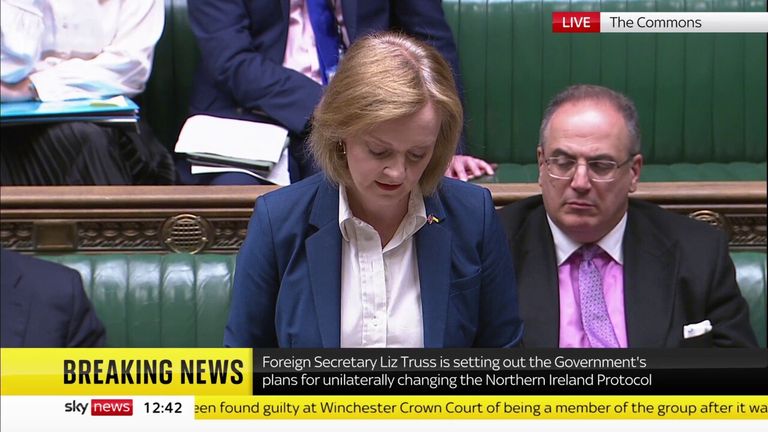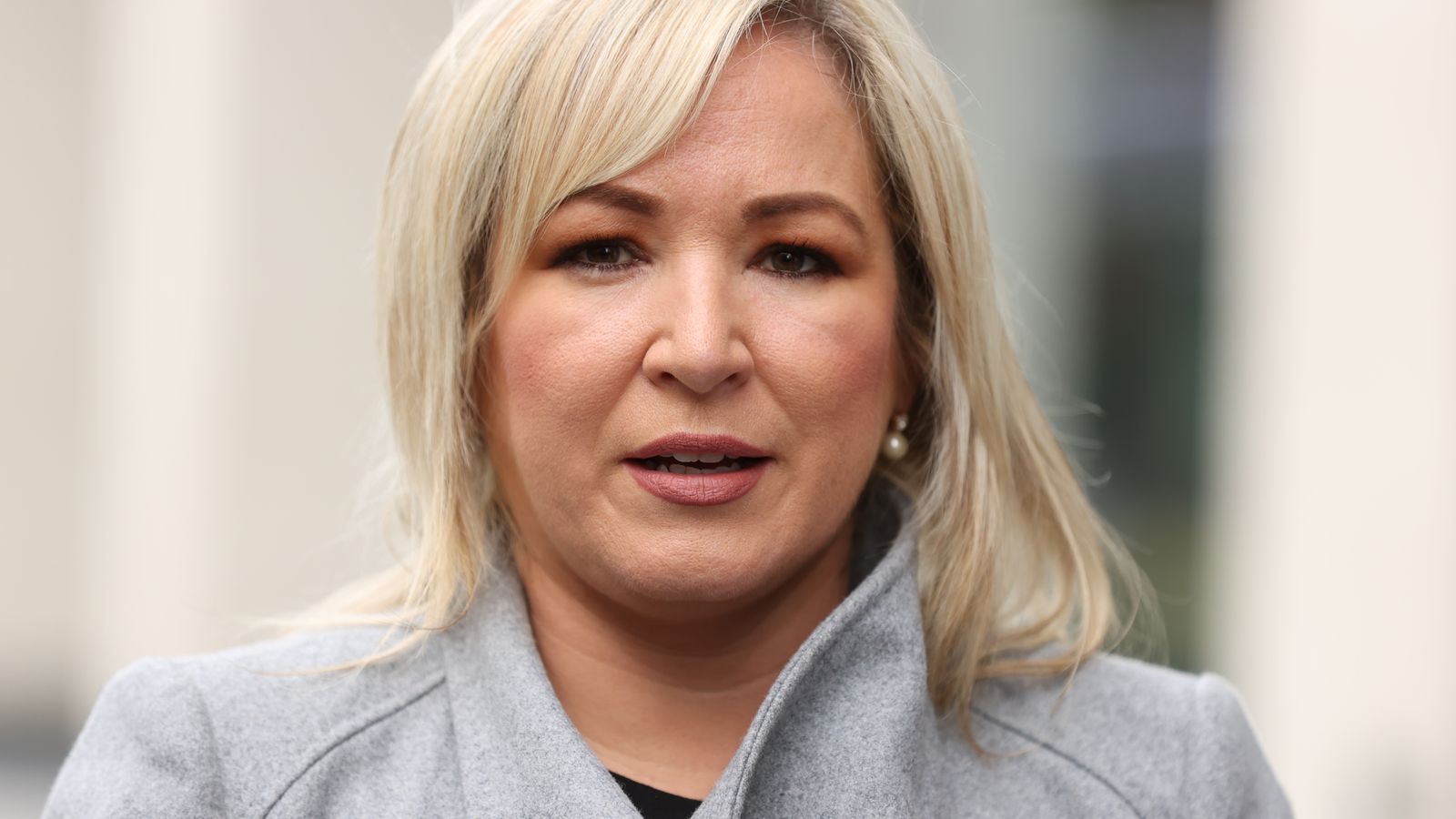[ad_1]
The foreign secretary has said the situation in Northern Ireland is “very grave and serious”.
According to Liz Truss, post-Brexit rules are “onerous”, leaving some supermarket shelves empty, many businesses in Northern Ireland have been hit and others have “stopped trading altogether.”
So what is Boris Johnson’s government doing about it? For all the ramping up of the rhetoric in the past week, the answer seems to be nothing anytime soon.
Article 16 – the mechanism that would allow rapid unilateral action to overrule the Treaty the UK agreed to in 2019 – is off the table for now.
There was no mention in last week’s Queen’s Speech of legislation allowing Britain to act without agreement.
Today is merely the announcement of future legislation “in the coming weeks”, but we have not yet seen a draft – and Ms Truss only gave a hint of the provisions it will contain.
That legislation, once published, will take perhaps nine months and maybe a year to get through both Houses of Parliament and on to the statute books. Even then, the government will have to make a fresh choice about whether to use its provisions.
There is even a suggestion from Ms Truss that should the EU change its approach, the proposed legislation may never appear at all.
“I’m very clear that we are open to a negotiated solution,” she told the Commons this afternoon.
In his response, the DUP leader Sir Jeffrey Donaldson indicated he could spy danger ahead.
While giving a conciliatory statement welcoming the foreign secretary’s words, Sir Jeffrey nevertheless stressed how the government’s actions mattered more. He is right to be cautious – for nobody can be quite sure where the government will end up.
Even in her statement, Ms Truss was not clear which of the government’s two stated but incompatible aims would take priority.
Is their aim to secure a series of changes to trade and governance in Northern Ireland, which Ms Truss started to layout in the chamber?
These include ensuring almost all goods arrive without checks in a new “green channel” and that the UK will be able to set VAT rates in NI as well as GB, which is tricky under the protocol.
Some other items will be added to this basket in the coming weeks.
Experts say at least some of this will be negotiable with the European Union without too much difficulty, although others will remain hard.
Or is the government’s aim to restore power sharing in the Northern Ireland Assembly? This would mean unionists – particularly the DUP – would be required to give their blessing to government moves after months of hardline rhetoric demanding that the protocol be scrapped rather than tweaked.
Read more:
What is the Northern Ireland Protocol and why does it matter?
Brexit and its consequences leave power sharing on life support
Johnson’s protocol gamble raises risk of an EU trade war
This is an altogether tougher demand – the DUP know from recent Northern Ireland history that any perception that they compromise now runs the risk of punishment at the ballot box – a fate that befell the Ulster Unionists after the Good Friday Agreement, and was one of the reasons the TUV syphoned some DUP vote in the Stormont elections earlier this month.
This higher hurdle makes a deal between Boris Johnson’s government and Brussels so much harder.
So why might the prime minister even contemplate going down the second, more high wire route, which would mean a much more inflammatory reaction from the EU and the potential for tariff retaliation?
Simply because he is being advised that the Tory right flank will start making his life difficult if he doesn’t.
There is huge resistance in what used to be the European Research Group.
There is a fear within unionist and Brexiteer ranks that the government might be prepared to do too quick a deal with Brussels to avoid the pain of a trade war, which keeps much of the protocol in place.
Mr Johnson has even called the necessary changes to the protocol “relatively minor”. Some in the ERG want to make clear that there is domestic pain ahead if he goes down this route.
It’s unclear if this will work. But prepare for a tussle ahead.
As ever, the choice for Mr Johnson, in the end, will be whether the pain of a DUP-pleasing row with Brussels outweighs the domestic trouble caused by a row with the Brexiteers who put him in Downing Street.
They are willing to inflict a scorched earth campaign over any sense he’s backtracking over historic promises to sort the protocol. The actual situation in Northern Ireland may end up being incidental.
[ad_2]








